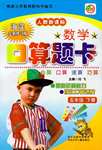
| 21£®A£®force | B£®encourage | C£®send | D£®teach |
| 22£®A£®hospital | B£®work | C£®school | D£®shop |
| 23£®A£®quite | B£®just | C£®only | D£®even |
| 24£®A£®nervous | B£®hungry | C£®sleepy | D£®busy |
| 25£®A£®worry | B£®pleasure | C£®disappointment | D£®surprise |
| 26£®A£®cleaned | B£®observed | C£®left | D£®searched |
| 27£®A£®brought | B£®put | C£®called | D£®woke |
| 28£®A£®chance | B£®food | C£®support | D£®recipe |
| 29£®A£®managed | B£®decided | C£®agreed | D£®waited |
| 30£®A£®so | B£®or | C£®but | D£®and |
| 31£®A£®normally | B£®always | C£®shortly | D£®softly |
| 32£®A£®cost | B£®time | C£®salary | D£®money |
| 33£®A£®suffer | B£®know | C£®leave | D£®cry |
| 34£®A£®decision | B£®promise | C£®point | D£®apology |
| 35£®A£®strange | B£®important | C£®difficult | D£®common |
| 36£®A£®father | B£®brother | C£®sister | D£®mother |
| 37£®A£®something | B£®anything | C£®everything | D£®nothing |
| 38£®A£®words | B£®records | C£®actions | D£®failures |
| 39£®A£®work out | B£®carry out | C£®run into | D£®look into |
| 40£®A£®opinion | B£®home | C£®order | D£®turn |
·ÖÎö ÎÄÕ½²Êö×÷ÕßСʱºò¼ÒÀïºÜÇÓÐʱÁ¬³ÔµÄ¶¼Ã»ÓУ¬µ«ÊÇ°Ö°Ö×ÜÊÇ»áÉè·¨¸øËûÃÇÕÒÀ´³ÔµÄ£¬²»»áÈÃËûÃǶö¶Ç×Ó£¬×÷ÕßÈÏΪÊǰְֵļÛÖµ¹Û£¬Ðж¯£¬ºÍ¼ÇÒäÈÃËûÏòÇ°£¬Ò²ÈÃËûÔÚΪÈ˸¸Ä¸µÄʱºòÖªµÀ¸ÃÔõô×ö£®
½â´ð 21-25 CBDBA 26-30 CDBAC 31-35 BDACB 36-40 DACAD
21£ºC¿¼²é¶¯´Ê±æÎö£ºA£®force Ç¿ÆÈ£¬B£®encourage¹ÄÀø£¬C£®sendËÍ£¬ÅÉ£¬D£®teach½Ì£¬ÎÒ°Ö°Ö×ÜÊÇ»áÓÃËûÔÜϵÄÇ®ËÍÂèÂèÈ¥¿´ÍûËýסµÄºÜÔ¶µÄ¸¸Ä¸ÄÇÀѡ C
22£ºB¿¼²éÃû´Ê±æÎö£ºA£®hospital Ò½Ôº£¬B£®work¹¤×÷£¬C£®schoolѧУ£¬D£®shopÉ̵꣬һÌìÍíÉÏ°Ö°ÖÏ°à»Ø¼Ò£¬Ñ¡B
23£ºD¿¼²é¸±´Ê±æÎö£ºA£®quite ·Ç³££¬B£®just½ö½ö£¬C£®onlyÖ»ÓУ¬D£®evenÉõÖÁ£¬¼ÒÀïûÓÐʳÎÉõÖÁÒ»¿éÃæ°ü¶¼Ã»ÓУ¬Ñ¡D
24£ºB¿¼²éÐÎÈݴʱæÎö£ºA£®nervous½ôÕŵģ¬B£®hungry¼¢¶öµÄ£¬C£®sleepyÀ§¾ëµÄ£¬D£®busy·±Ã¦µÄ£¬´ÓÏÂÎĵÄmy brother and I went to bed without eating anything£®¿ÉÖªÎÒÃǶ¼ºÜ¶ö£¬Ñ¡B
25£ºA¿¼²éÃû´Ê±æÎö£ºA£®worryµ£ÐÄ£¬B£®pleasure¿ìÀÖ£¬C£®disappointmentʧÍû£¬D£®surprise¾ªÑÈ£¬´ÓËûµ£ÐĵÄÁ³ÉÏÎÒÃÇÖªµÀ°Ö°Ö²»ÄÜÈÃÎÒÃÇ¿Õ¶Ç×Ó£¬Ñ¡A
26£ºC¿¼²é¶¯´Ê±æÎö£ºA£®cleanedÇå½à£¬B£®observed¹Û²ì£¬C£®leftÀ뿪£¬D£®searchedÑ°ÕÒ£¬´ÓÏÂÎĵģºabout two hours later returned and quickly 27 us up£®¿ÉÖªËûÀ뿪·¿×ÓÁË£¬Ñ¡C
27£ºD¿¼²é¶¯´Ê±æÎö£ºA£®broughtÂò£¬B£®put·Å£¬C£®called´òµç»°£¬D£®woke½ÐÐÑ£¬Á½Ð¡Ê±ºó£¬Ëû»ØÀ´£¬½«ÎÒÃǽÐÐÑ£¬Ñ¡D
28£ºB¿¼²éÃû´Ê±æÎö£ºA£®chance»ú»á£¬B£®foodʳÎC£®supportÖ§³Ö£¬D£®recipeʳÆ×£¬´¦·½£¬Ãؾ÷£¬´ÓÇ°ÃæµÄ£ºtwo small potato pies£¬which he gave us to eat£®¿ÉÖªÎÒÃDz»ÖªµÀËû´ÓÄÄÀïŪµ½ÕâЩʳÎïµÄ£¬Ñ¡B
29£ºA¿¼²é¶¯´Ê±æÎö£ºA£®managedÉè·¨£¬B£®decided¾ö¶¨£¬C£®agreed ͬÒ⣬D£®waitedµÈ´ý£¬²»¹ÜÔõÑù£¬ËûÉè·¨¸øÎÒÃÇŪµ½Á˳ԵĶ«Î÷£¬Ñ¡A
30£ºC¿¼²é¸±´Ê±æÎö£ºA£®soËùÒÔ£¬B£®or »òÕߣ¬C£®butµ«ÊÇ£¬D£®and²¢ÇÒ£¬°Ö°Ö×Ô¼ºÃ»ÓгԶ«Î÷£¬µ«ÊÇËûÂú×ãµÄ×øÔÚÄÇÀï¿´ÎÒÃdzԣ¬ÕâÁ½¾ä»°ÊÇתÕÛ¹Øϵ£¬Ñ¡C
31£ºB¿¼²é¸±´Ê±æÎö£ºA£®normallyÕý³£µØ£¬B£®always×ÜÊÇ£¬C£®shortly¿ìµØ£¬D£®softlyÈáÈíµØ£¬Õâ¸öÇé¾°×ÜÊÇÍ£ÁôÔÚÎÒµÄÄÔº£ÀѡB
32£ºD¿¼²éÃû´Ê±æÎö£ºA£®cost³É±¾£¬·ÑÓã¬B£®timeʱ¼ä£¬C£®salary нˮ£¬D£®moneyÇ®£¬±ÈËû¸øÎÒµÄÈκεÄÇ®ÁôϵÄÓ¡Ï󶼻¹ÒªÉî¿Ì£®Ñ¡D
33£ºA¿¼²é¶¯´Ê±æÎö£ºA£®suffer ÔâÊÜ£¬Êܿ࣬B£®knowÖªµÀ£¬C£®leaveÀ뿪£¬D£®cry¿Þº°£¬ÎÒÃÇÖªµÀ°Ö°ÖÔÚÄÇÀ²»»áÈÃÎÒÃÇÊÜ¿àµÄ£¬Ñ¡A
34£ºC¿¼²éÃû´Ê±æÎö£ºA£®decision¾ö¶¨£¬B£®promise´ðÓ¦£¬C£®pointÒªµã£¬Öص㣬Â۵㣬D£®apologyµÀǸ£¬ÎÒÏëÎÒÏëÖ¤Ã÷µÄÂÛµãÊÇÔÚÀ§ÄÑʱÆÚ£¬ÖØÒªµÄ²»ÊDZíʾÈõµã¶øÊDZíʾÁ¦Á¿ºÍÐÔ¸ñ£®Ñ¡C
35£ºB¿¼²éÐÎÈݴʱæÎö£ºA£®strangeÆæ¹ÖµÄ£¬B£®importantÖØÒªµÄ£¬C£®difficultÀ§Äѵģ¬D£®commonÆÕͨµÄ£¬ÖØÒªµÄ²»ÊDZíʾÈõµã¶øÊDZíʾÁ¦Á¿ºÍÐÔ¸ñ£®Ñ¡B
36£ºD¿¼²éÃû´Ê±æÎö£ºA£®father¸¸Ç×£¬B£®brotherÐֵܣ¬C£®sister½ãÃã¬D£®motherÂèÂ裬´ÓÏÂÎĵģºthen the father is 37 that strengthens that cement£®¿ÉÖªÂèÂèÊǼÒÍ¥µÄÕ³ºÏ¼Á£¬Ñ¡D
37£ºA¿¼²é´ú´Ê±æÎö£ºA£®somethingijЩÊ£¬ÖØÒªµÄÈË£¬B£®anythingÈκÎÊÂÇ飬C£®everythingÿ¼þÊ£¬D£®nothingûÓÐʲô£¬°Ö°Ö¾ÍÊǼÓÇ¿Õâ¸öÕ³ºÏ¼ÁµÄÄǸöÖØÒªµÄÈË£¬Ñ¡A
38£ºC¿¼²éÃû´Ê±æÎö£ºA£®words»°ÓB£®records¼Ç¼£¬C£®actionsÐж¯£¬D£®failuresʧ°Ü£¬ÊÇËûµÄ¼ÛÖµ¹Û£¬Ðж¯£¬ºÍ¼ÇÒäÈÃÎÒÏòÇ°£®Ñ¡C
39£ºA¿¼²é¶¯´Ê¶ÌÓï±æÎö£ºA£®work outÖƶ¨³ö£¬½â¾ö£¬¶ÍÁ¶£¬½á¹ûÊÇ£¬B£®carry outʵʩ£¬C£®run intoÓöµ½£¬D£®look intoµ÷²é£¬°ïÖúÎÒ½â¾öÈËÉúÖеÄ×Ô¼ºµÄÎÊÌ⣮ѡA
40£ºD¿¼²éÃû´Ê±æÎö£ºA£®opinion¹Ûµã£¬B£®home¼Ò£¬C£®orderÃüÁ˳Ðò£¬D£®turnÂÖÁ÷£¬ÂÖµ½ÎÒ×Ô¼ºµÄʱºò£¬ÎÒÒѾ֪µÀÄãºÍº¢×ÓÒ»Æð¶È¹ýµÄʱ¼äÊÇÕä¹óµÄʱ¼ä£¬Äã¸øËûÃǵļÛÖµ¹Û½«»áÓÀÔ¶ºÍËûÃÇÔÚÒ»Æð£®Ñ¡ D
µãÆÀ ÍêÐÍÌî¿Õ£¬½âÌâʱҪץסÎÄÕµÄÂöÂ磬һ¶¨Òª¶Á¶®È«ÎÄ£¬ÅªÇåÎÄÕÂÒª±í´ïµÄ˼Ï룬עÒâÇ°ºó¶ÎÂäÖ®¼äµÄ¹Øϵ£®´ðÌâÖУ¬Ò»¶¨ÒªÈÏÕæ·ÖÎö£¬×¢ÒâÑ¡ÏîÓëÉÏÏÂÎĵĹØϵ£¬ÓëÇ°ºóµ¥´ÊµÄ¹Øϵ£®¶ÔÓÚһʱûÓÐÌ«´óµÄ°ÑÎÕµÄÌâ¿ÉÒԷŵ½×îºóÔÙÀ´Íê³É£¬ÒòΪÓÐʱ´ð°¸¿ÉÒÔ´ÓÏÂÎÄÄÚÈÝÌåÏÖ³öÀ´£®´ðÍêºóÔÙͨ¶ÁһƪÎÄÕ£¬¿´¿´ËùÑ¡Ñ¡ÏîÄܲ»ÄÜÊÇÓï¾äͨ˳£¬ÓïÒâÁ¬¹á£®


 ÅàÓÅ¿ÚËãÌ⿨ϵÁдð°¸
ÅàÓÅ¿ÚËãÌ⿨ϵÁдð°¸ ¿ªÐÄ¿ÚËãÌ⿨ϵÁдð°¸
¿ªÐÄ¿ÚËãÌ⿨ϵÁдð°¸ ¿ÚËãÌ⿨ºÓ±±ÉÙÄê¶ùͯ³ö°æÉçϵÁдð°¸
¿ÚËãÌ⿨ºÓ±±ÉÙÄê¶ùͯ³ö°æÉçϵÁдð°¸ A¼Ó½ðÌâ ϵÁдð°¸
A¼Ó½ðÌâ ϵÁдð°¸
| Ä꼶 | ¸ßÖÐ¿Î³Ì | Ä꼶 | ³õÖÐ¿Î³Ì |
| ¸ßÒ» | ¸ßÒ»Ãâ·Ñ¿Î³ÌÍƼö£¡ | ³õÒ» | ³õÒ»Ãâ·Ñ¿Î³ÌÍƼö£¡ |
| ¸ß¶þ | ¸ß¶þÃâ·Ñ¿Î³ÌÍƼö£¡ | ³õ¶þ | ³õ¶þÃâ·Ñ¿Î³ÌÍƼö£¡ |
| ¸ßÈý | ¸ßÈýÃâ·Ñ¿Î³ÌÍƼö£¡ | ³õÈý | ³õÈýÃâ·Ñ¿Î³ÌÍƼö£¡ |
¿ÆÄ¿£º¸ßÖÐÓ¢Óï À´Ô´£º2016-2017ѧÄêºÚÁú½Ê¡¹þ¶û±õÊиßÒ»ÏÂѧÆÚÆÚÖп¼ÊÔÓ¢ÓïÊÔ¾í£¨½âÎö°æ£© ÌâÐÍ£ºµ¥ÏîÌî¿Õ
It won¡¯t be long ______ you regret what you have done.
A. after B. before
C. since D. until
²é¿´´ð°¸ºÍ½âÎö>>
¿ÆÄ¿£º¸ßÖÐÓ¢Óï À´Ô´£º ÌâÐÍ£ºÑ¡ÔñÌâ
| A£® | A bit more effort | B£® | Having a little effort | ||
| C£® | If you have a bit more effort | D£® | There being a little effort |
²é¿´´ð°¸ºÍ½âÎö>>
¿ÆÄ¿£º¸ßÖÐÓ¢Óï À´Ô´£º ÌâÐÍ£ºÔĶÁÀí½â
²é¿´´ð°¸ºÍ½âÎö>>
¿ÆÄ¿£º¸ßÖÐÓ¢Óï À´Ô´£º ÌâÐÍ£ºÔĶÁÀí½â
²é¿´´ð°¸ºÍ½âÎö>>
¿ÆÄ¿£º¸ßÖÐÓ¢Óï À´Ô´£º ÌâÐÍ£ºÔĶÁÀí½â
²é¿´´ð°¸ºÍ½âÎö>>
¿ÆÄ¿£º¸ßÖÐÓ¢Óï À´Ô´£º ÌâÐÍ£ºÍêÐÎÌî¿Õ
| 36£®A£®inconvenient | B£®important | C£®different | D£®wrong |
| 37£®A£®hall | B£®store | C£®traffic | D£®line |
| 38£®A£®thank | B£®pay | C£®serve | D£®recognize |
| 39£®A£®heavier | B£®thinner | C£®longer | D£®hotter |
| 40£®A£®power | B£®price | C£®voice | D£®spirit |
| 41£®A£®earn | B£®collect | C£®save | D£®need |
| 42£®A£®get | B£®prepare | C£®carry | D£®finish |
| 43£®A£®smiled | B£®responded | C£®watched | D£®stood |
| 44£®A£®money | B£®word | C£®reason | D£®news |
| 45£®A£®impatiently | B£®sadly | C£®angrily | D£®tensely |
| 46£®A£®within | B£®along | C£®for | D£®above |
| 47£®A£®food | B£®gift | C£®paper | D£®box |
| 48£®A£®exception | B£®change | C£®notice | D£®help |
| 49£®A£®managed | B£®searched | C£®left | D£®reached |
| 50£®A£®tended | B£®turned | C£®happened | D£®chose |
| 51£®A£®kind | B£®cool | C£®easy | D£®brave |
| 52£®A£®report | B£®joke | C£®prove | D£®think |
| 53£®A£®argument | B£®conversation | C£®article | D£®meeting |
| 54£®A£®action | B£®request | C£®business | D£®fortune |
| 55£®A£®friend | B£®boy | C£®life | D£®moment£® |
²é¿´´ð°¸ºÍ½âÎö>>
¿ÆÄ¿£º¸ßÖÐÓ¢Óï À´Ô´£º ÌâÐÍ£ºÑ¡ÔñÌâ
| A£® | should | B£® | must | C£® | could | D£® | would |
²é¿´´ð°¸ºÍ½âÎö>>
¿ÆÄ¿£º¸ßÖÐÓ¢Óï À´Ô´£º ÌâÐÍ£ºÔĶÁÀí½â
²é¿´´ð°¸ºÍ½âÎö>>
°Ù¶ÈÖÂÐÅ - Á·Ï°²áÁбí - ÊÔÌâÁбí
ºþ±±Ê¡»¥ÁªÍøÎ¥·¨ºÍ²»Á¼ÐÅÏ¢¾Ù±¨Æ½Ì¨ | ÍøÉÏÓк¦ÐÅÏ¢¾Ù±¨×¨Çø | µçÐÅթƾٱ¨×¨Çø | ÉæÀúÊ·ÐéÎÞÖ÷ÒåÓк¦ÐÅÏ¢¾Ù±¨×¨Çø | ÉæÆóÇÖȨ¾Ù±¨×¨Çø
Î¥·¨ºÍ²»Á¼ÐÅÏ¢¾Ù±¨µç»°£º027-86699610 ¾Ù±¨ÓÊÏ䣺58377363@163.com